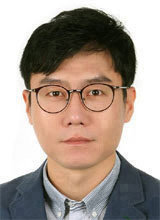Vice minister with shadowy influence hopes to go for long
Vice minister with shadowy influence hopes to go for long
Posted September. 21, 2020 07:36,
Updated September. 21, 2020 07:36

“I should go for long,” South Korean First Vice Minister of Foreign Affairs Choi Jong-kun, assumed to have unseen but influential power, spoke to the minister’s senior officials last month right after he took office. Choi is well-known as a government official who focuses on an independent front between the two Koreas. His promotion from presidential secretary for peace planning to first vice minister of foreign affairs drove the ministry into tension and question, making it speculate that the South Korean presidential office Cheong Wa Dae attempts to maintain a high level of discipline by appointing Choi to a position at the ministry as President Moon Jae-in’s term is nearing its end. Choi once said to press members, “I hope to help the administration maintain momentum because its influence weakens toward the end of its term.”
With all things considered, it draws a question about what he meant by going for long. With President Moon leaving office one and a half years later, he did not mean that he wants to stay in the current position as long as possible. Rather than that, he intended not to make enemies among diplomats as the 46-year-old vice minister is still young enough to look forward to what lies in the future even after he leaves the ministry.
Choi shows his strong determination and will by sharing his personal views on a wide range of foreign affairs. He sometimes has no hesitation to take a different viewpoint from the rest of the ministry’s seniors by putting emphasis on the governance principles of the incumbent administration. His efforts to establish “alliance dialogue” with the United States seemingly intended to produce results before President Moon leaves office.
The U.S. presidential election in November may turn into an opportunity to resume the stalled dialogue channel between Washington and Pyongyang. Added to this, some shifts may occur to the status quo as a result of a set of foreign affairs strategies that North Korea will establish when it solidifies from within after the 8th rally of the North Korean Workers' Party ends next January. The determining factor is a timing. Next year, South Korea will start its preparations to hold the next presidential election. Whoever becomes the next U.S. president, it may be almost impossible to mend the Hanoi summit between Washington and Pyongyang that ended up in a failure due to the sole focus that they put on the magic of their chemistry. In any case, senior officials in the current South Korean administration anxiously try to make and leave a legacy of its efforts into resolving North Korean nuclear issues and other inter-Korean affairs.
Under these circumstances, South Korean government authorities for foreign affairs, unification and national security share the common worry that the incumbent administration may aim to address North Korean issues within just one and a half years, which they believe takes a longer time period, expressing concerns that such a gap in their opinions is ever widening. There is a growing consensus that what matters more is having quality discussions than merely feeling the need to talk and that it is important to make smartly delicate concessions to North Korea even if it happens. For example, the common view is that there should be no repetition of the political showmanship that led U.S. President Donald Trump to allow Pyongyang to easily gain the upper hand regarding the issue of U.S.-R.O.K. joint military drills, one of the most expensive bargain chips on the negotiating table.
It is the right way to go to find the common ground by communicating with experienced officials to increase chances of addressing North Korean nuclear issues although adherence to the administration's governance principles holds legitimate significance. Such a strategic approach becomes more important as the incumbent administration is nearing the end of its term. South Korea can see greater benefits in the coming years when Cheong Wa Dae works to lay the foundations for inter-Korean dialogue based on a longer-term perspective, rather than when individual officials such as Choi stay as long as possible in major positions.
Wan-Jun Yun zeitung@donga.com







